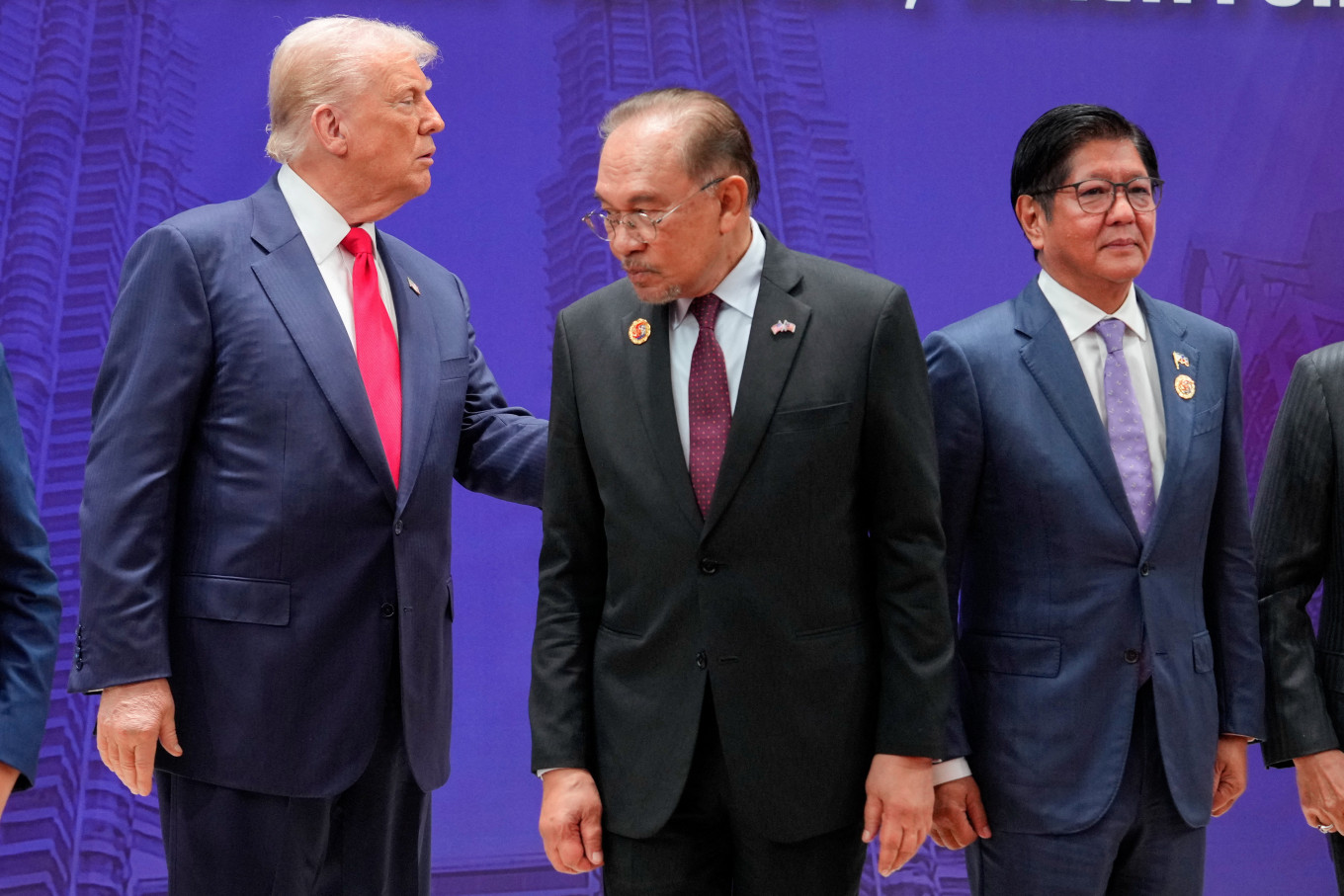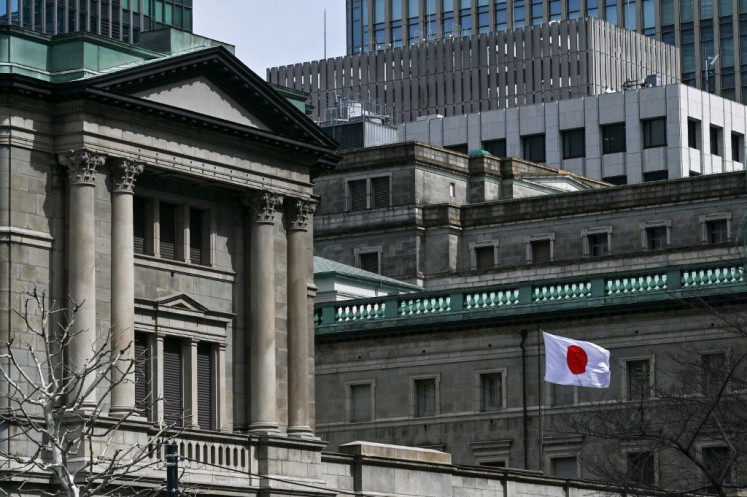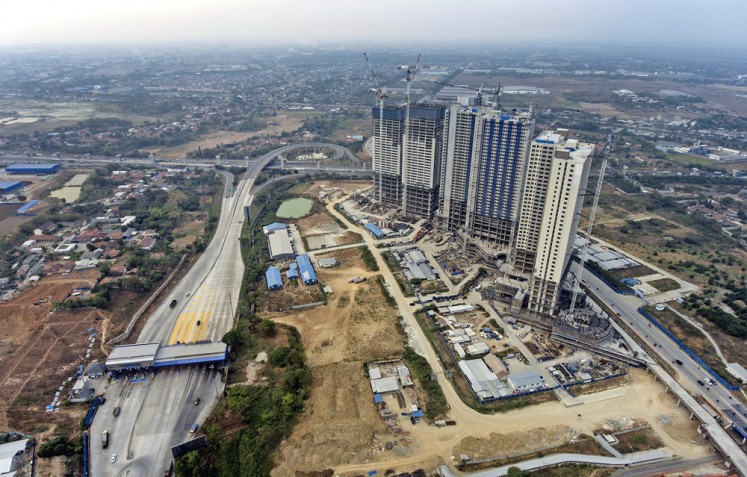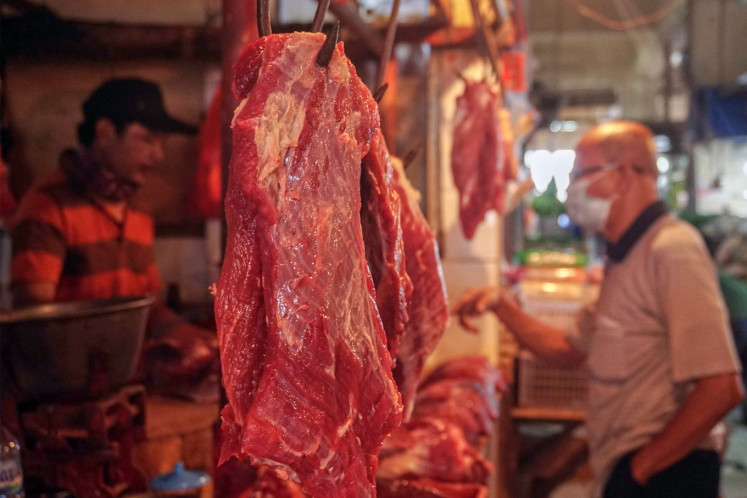Popular Reads
Top Results
Can't find what you're looking for?
View all search resultsPopular Reads
Top Results
Can't find what you're looking for?
View all search resultsTrump inks US deals on trade, critical minerals with Southeast Asian partners
Change text size
Gift Premium Articles
to Anyone
U
S President Donald Trump signed a flurry of deals on trade and critical minerals with three Southeast Asian partners on Sunday, as Washington looked to address trade imbalances and diversify supply chains amid tighter export curbs on rare earths by China.
Trump, who is in Kuala Lumpur to attend a summit of the Association of Southeast Asian Nations, signed reciprocal trade agreements with his Thai, Malaysian and Cambodian counterparts that will see the countries work to address tariff and non-tariff barriers.
The United States would maintain a tariff rate of 19 percent on most exports from all three countries under the deals, according to joint statements released by the White House.
Trump also inked US deals with Thailand and Malaysia seeking cooperation to diversify critical minerals supply chains, amid competing efforts from Beijing in the rapidly growing sector.
Reuters reported exclusively last month that China was in talks with Kuala Lumpur on rare earths processing, with Malaysian sovereign wealth fund Khazanah Nasional expected to partner with a Chinese firm to build a refinery in Malaysia.
China, the world's top miner and processor of rare earths, has imposed increasingly stringent export controls on its refining technology, sending global manufacturers scrambling to secure alternative supplies for critical minerals used widely in semiconductor chips, electric vehicles and military equipment.
Malaysia on Sunday agreed to refrain from banning or imposing quotas on exports to the United States of critical minerals or rare earth elements, the countries said in a statement.
The statement however did not specify whether Malaysia's pledge applied to raw or processed rare earths.
Malaysia, which has an estimated 16.1 million tonnes of rare earth deposits, has banned companies from exporting raw rare earths to prevent the loss of resources as it looks to develop its downstream sector.
Under the deal, Kuala Lumpur also agreed to provide significant preferential market access for industrial goods and agricultural imports from the United States, the statement said.
This includes chemicals, machinery and passenger vehicles, as well as products such as as dairy and poultry.
Malaysia, a majority Muslim country recognised as a global leader in halal certification, also agreed to streamline requirements for US products such as cosmetics and pharmaceuticals, the statement said.
Meanwhile, Thailand would eliminate tariff barriers on approximately 99 percent of goods, covering a full range of US industrial and food and agricultural products, both countries said.
Thailand, Malaysia, and Cambodia also pledged to protect labour rights and strengthen environmental protections in the deals.
The agreements were inked after Trump oversaw the signing of an enhanced ceasefire agreement between Thailand and Cambodia, following deadly border clashes between the Southeast Asian neigbours earlier this year.











